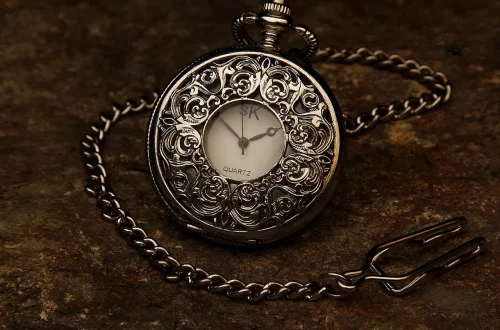
What Does It Mean When a Kitten Licks You? Understanding Feline Behavior
Understanding feline behavior can be a fascinating journey for cat owners and enthusiasts alike. Cats are known for their quirky, often mysterious behaviors that can leave us both amused and puzzled. One particular action that often raises questions is when a kitten licks you. This seemingly simple act can hold a variety of meanings, depending on the context and the kitten’s personality.
Kittens, like all felines, exhibit behaviors rooted in their instincts and social structures. Licking is a natural behavior for cats, serving multiple purposes throughout their lives. From grooming to bonding, the reasons behind this action can be multifaceted. As we delve into the world of kitten behavior, we can better understand not only what it means when your kitten licks you but also how to respond to this affectionate gesture.
By paying attention to the nuances of your kitten’s behavior, you can strengthen your bond and create a more harmonious environment. Whether you’re a new cat parent or a seasoned feline lover, understanding these behaviors will enrich your experience and potentially enhance your relationship with your furry companion. Let’s explore the various dimensions of this intriguing action, unraveling the layers of meaning behind those tiny, affectionate licks.
Why Kittens Lick: Grooming Instincts
One of the primary reasons kittens lick is to groom themselves and others. In the wild, cats spend a significant portion of their day cleaning their fur. This behavior is not just about aesthetics; it serves practical purposes as well. Grooming helps remove dirt, parasites, and loose fur, keeping the cat healthy and clean. For kittens, the act of licking is a learned behavior from their mothers.
When a mother cat licks her kittens, she is not only cleaning them but also stimulating their circulation and digestion. This nurturing act strengthens the bond between them. As kittens grow, they adopt this behavior and may extend it to their human companions. When your kitten licks you, it could be a sign of affection and trust, mirroring the care they received from their mother.
Moreover, grooming can be a way for kittens to feel secure and comforted. Just as they find solace in their mother’s grooming, they may seek the same comfort in you. Licking can release endorphins, making the kitten feel relaxed and happy. Therefore, if your kitten licks you, it might be their way of saying, “I feel safe with you.”
It is essential to note that while licking is a natural behavior, it can become excessive in some cases. If your kitten is licking to the point of causing skin irritation or distress, it might be worth consulting a veterinarian. They can help determine if there are underlying issues such as anxiety or allergies that need to be addressed.
Social Bonding and Affection
Kittens are social creatures, and licking plays a crucial role in their social interactions. When they lick you, they may be expressing affection and strengthening their bond with you. This behavior is similar to how they would interact with their littermates or mother, reinforcing social ties through grooming.
Licking can also indicate that your kitten sees you as part of their family unit. In the wild, cats groom each other as a means of social bonding. This act fosters a sense of community and mutual care. When your kitten licks you, it is essentially including you in their social circle, indicating trust and love.
Moreover, the act of licking can be a way for kittens to seek attention and engage with you. If your kitten notices that licking leads to petting, playtime, or other positive interactions, they may lick you more frequently as a way to initiate these activities. It becomes a form of communication, conveying their desire for connection and engagement.
Understanding this aspect of licking can enhance your relationship with your kitten. Responding positively to their affectionate gestures can encourage more bonding behaviors. Engaging in play or providing gentle petting when your kitten licks you can strengthen that connection, making them feel even more secure and loved.
It’s essential to recognize the nuances of this behavior. While licking is often a sign of affection, it can sometimes be a way for kittens to express discomfort or anxiety. If your kitten licks you excessively or seems agitated, it may be worth observing their overall behavior for signs of stress or unease.
Communication and Exploration
Kittens are naturally curious creatures, and licking can also be a form of exploration and communication. Through licking, they can gather information about their environment and the beings within it. Cats have a highly developed sense of taste and smell, and licking allows them to investigate and learn more about their surroundings.
When a kitten licks you, they may be trying to understand your scent or the taste of your skin. This is particularly true if you’ve recently handled food or other substances that may have a scent or flavor that piques their interest. By licking, they are gathering sensory information, which is a fundamental part of how cats interact with the world.
Additionally, kittens may lick to communicate their needs or feelings. For instance, if they are feeling anxious or need reassurance, licking can be a self-soothing behavior. Conversely, they may lick you to get your attention or signal that they want something, such as food or playtime.
Understanding this aspect of licking can help you respond appropriately to your kitten’s needs. If you notice them licking you in a particular context, try to identify what they might be trying to communicate. Are they hungry? Seeking comfort? Or perhaps they just want to play? By tuning into these signals, you can foster a better understanding and connection with your furry friend.
In some cases, excessive licking can indicate underlying health issues or behavioral problems. If your kitten licks you constantly or shows signs of distress, it might be beneficial to consult a veterinarian or a feline behaviorist for guidance.
The Role of Stress and Anxiety in Licking Behavior
While licking is often a sign of affection or curiosity, it can also be a response to stress or anxiety. Kittens, like humans, experience a range of emotions, and their behavior can reflect their mental state. If a kitten is feeling overwhelmed or insecure, they might resort to licking as a coping mechanism.
This behavior can be particularly evident in new environments or situations. For instance, if you recently relocated, introduced new pets, or made significant changes in their surroundings, your kitten might lick excessively as a way to self-soothe. It’s their way of finding comfort amidst the uncertainty.
In some cases, kittens may develop compulsive licking behaviors, which can lead to skin irritation or stress-related issues. If you notice that your kitten is licking not just you but themselves excessively, it’s essential to monitor the behavior closely. Compulsive licking can indicate underlying anxiety or boredom, and addressing these issues promptly can prevent further complications.
Creating a stable and enriching environment for your kitten is crucial in mitigating stress-related behaviors. Providing ample playtime, interactive toys, and safe spaces for them to retreat can help alleviate anxiety. Additionally, establishing a routine can make your kitten feel more secure and reduce the likelihood of stress-induced licking.
If your kitten’s licking behavior is concerning or seems excessive, seeking professional advice from a veterinarian or a cat behaviorist is always a good idea. They can provide tailored strategies and solutions to help manage your kitten’s anxiety and promote a healthier, happier lifestyle.
In summary, understanding why kittens lick can help you foster a deeper bond with your furry friend. Whether it’s a sign of affection, a means of communication, or a response to stress, recognizing the nuances of this behavior can enhance your relationship and create a more harmonious living environment.
**Disclaimer:** This article is not a substitute for professional medical advice. If you have concerns about your kitten’s health or behavior, please consult a veterinarian for appropriate guidance.




